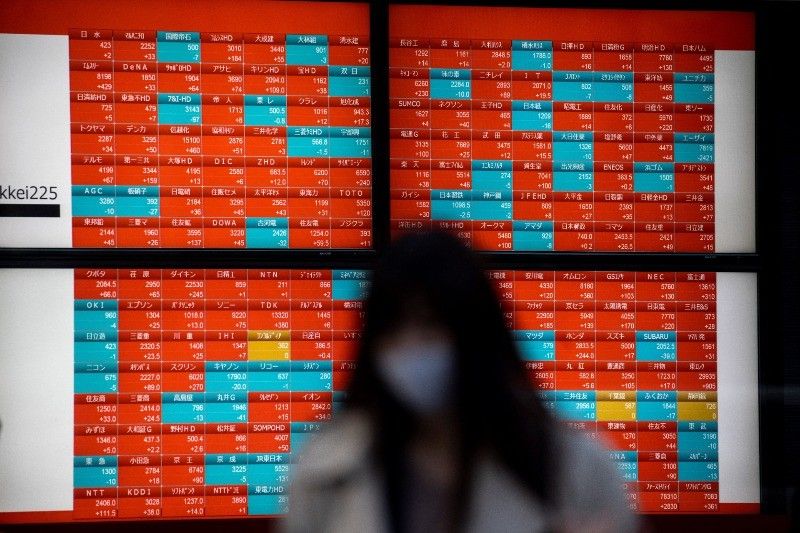Asian markets hurt by fears over inflation, Fed and US default

HONG KONG, China — Asian markets mostly fell Wednesday following a rout on Wall Street as investors fret over surging inflation, the end of the Federal Reserve's financial support and a standoff in Washington that could end with a catastrophic US debt default.
Ongoing worries about the potential collapse of Chinese property giant Evergrande, an energy crunch in China and the ever-present spectre of the Delta coronavirus variant also dragged the mood down on trading floors.
After a year and a half of ultra-loose monetary policy from the Fed and other central banks -- helping fire a global economic recovery and send equities to record or multi-year highs -- officials have signalled they are ready to take away the punch bowl.
While broadly expected, the decision comes as inflation continues to surge owing to supply chain problems as well as a spike in energy costs -- Brent crude broke $80 for the first time in three years on Tuesday.
The Fed last week indicated it would start winding down its massive bond-buying programme by the end of the year, while a gauge of future interest rates suggested a hike could come before 2023.
The news was initially taken in stride, but a surge in Treasury yields this week has sparked panic that the Fed could tighten much earlier and quicker than initially thought as inflation takes off.
The dollar largely held on to recent gains as higher yields make the currency more attractive to investors.
This has led to talk of a possible period of damaging "stagflation", where inflation surges but economic growth remains subdued.
The Nasdaq led a sharp sell-off in New York with tech firms more susceptible to higher rates as they borrow cash to fuel growth.
"What we got here is a stock market that finally looks vulnerable as Treasury yields surge, oil prices look like they could easily hit $90 a barrel, and as supply chain issues show no signs of easing," said OANDA's Edward Moya.
"The Fed was willing to tolerate a little inflation overshoot, but the current energy crunch could force a major pivot before the end of the year."
Bickering in Washington
Tokyo tanked more than 2% having enjoyed a strong run in recent weeks on hopes for more stimulus from a new Japanese prime minister.
The ruling party elected former foreign minister Fumio Kishida its new leader Wednesday, putting him on course to take the mantle of Yoshihide Suga.
Shanghai, Sydney and Seoul lost more than 1% with Taipei down 1.9%. There were also losses in Wellington, Mumbai and Bangkok.
However, Hong Kong, Singapore, Manila and Jakarta rose.
London, Paris and Frankfurt rose in early trade.
"There could also be an element of month and quarter-end flows helping to drive some of this volatility," said CMC Markets analyst Michael Hewson.
"However, it is clear from recent messaging from central bankers that concern is rising about a much more persistent inflation narrative, which in turn could mean that a US rate rise could well be a lot closer than had been originally priced, as recently as a couple of meetings ago."
Investors are also keeping an increasingly worried eye on Washington where lawmakers are bickering over raising the US debt ceiling.
Republicans have refused to agree to the move, despite top officials including Treasury Secretary Janet Yellen and Fed boss Jerome Powell warning of an economic thunderbolt if the country fails to meet its bond repayment obligations.
Yellen said a deal needs to be done before the cash runs out around October 18.
Separately, the government could shut down later this week unless Congress approves a temporary budget measure by Thursday.
That comes as Democrats struggle to pass President Joe Biden's multi-trillion-dollar infrastructure and social spending bills, with party infighting fuelling concerns that the president's agenda could collapse.
Oil prices fell after data pointed to a drop in US stockpiles, though analysts expect the commodity to maintain its strength for the foreseeable future.
- Latest
- Trending

























